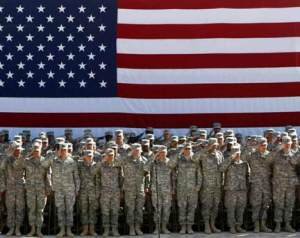
There is no manner in which a military action against Iran can serve long term US interests.
by Jack JC
True strategic thinking takes into account all facets of a problem, the technological, social, military, diplomatic, historic and so on. Each of these factors must be weighed for their long term and short term effects and probabilities assigned. When a disconnect is seen between the desired effects on a sovereign nation and the recommended course of action, then unseen forces must be guiding from behind.
In this article there is no manner in which a military action against Iran can serve long term US interests.
- China’s Iranian Gambit
FP — Singh : “Whereas Washington tends to see Beijing as torn between conflicting priorities, Chinese strategists see the Islamic Republic as a potential partner in their strategic rivalry with the United States. Unless Beijing can be convinced that the costs of obstructing U.S. efforts on Iran outweigh the benefits of doing so, the Chinese will be of little help. Shifting China’s calculus in this manner ultimately requires that the United States develop a credible military option to neutralize Iran’s nuclear-weapons aims.”
JC : Why does the US need to ‘develop a credible military option’? At this time the USA acquires sufficient oil from continental North American sources, Venezuela, Africa, Saudi Arabia, and other ME countries. There is no real strategic advantage for a sovereign US to interfere in the internal affairs of a sovereign Iran, or to interfere in the affairs of China who happens to be the US’s largest creditor. If oil costs money or resources in exchange, pay it and move on. The US already spends about 43% of the total world defense budget and Iran is far down the list – China, in second place, is about 8%. By bringing the fifth fleet home, buying oil as needed and disarming the situation by removing the threat of force, there is real economic advantage for US citizens in decreased taxes and opportunity to reduce sovereign debt. For the US to ‘need’ to develop a credible military option, some other force must be at play.
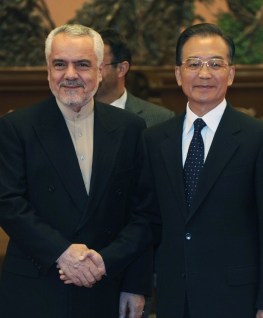
FP– Singh : “The effects are pernicious. Increasing Chinese trade with Iran — projected to reach $40 billion in 2011, up from $30 billion last year, according to the Chinese ambassador to Iran — eases the pressure on Tehran and provides the Iranian regime with revenue, expertise, and other resources. It also leads to howls of protest by European and Asian firms that have curtailed their business with Iran only to see it backfilled by Chinese competitors.”
JC : In a wonderful display of ‘fuzzy logic’ the writers now claim that the Chinese are taking over lucrative contracts that US companies might have received, if the US government hadn’t sanctioned the hell out of Iran. So with the sanctions come a price, paid for by US citizens who are losing jobs to Chinese firms because the US government isn’t willing to ante up and talk to Iran. Obviously, there’s another factor at work!
FP — Singh : “Indeed, from a security perspective, Iran’s geographic position is unique — it is the only Gulf supplier that China can reach by both pipelines and sea routes. This diversification of supply lines helps reassure those in Beijing who most fear a foreign interdiction campaign or blockade that would cut China off from its energy supplies.”
JC : This is true, China sees Iran as a source of oil outside the influence of the USA. Strategically speaking, oil is a requirement for running a modern infrastructure and the Chinese have seen how the USA sold advanced weaponry to Japan, then cut off their oil flow, creating one of the factors leading to WWII. Obviously, it is important to ensure your supply chain is under your control or influence – Sun Tzu covered this in 700 BC. However, this may prove only a temporary need on China’s part as the move to Thorium Breeder reactors is underway. http://energyfromthorium.com/2011/01/30/china-initiates-tmsr/
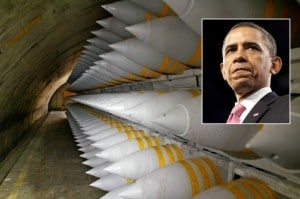
“This support has continued and, in certain areas, seems to have expanded. For instance, news reports that arms from Tehran have found their way into the hands of militants in Iraq and Afghanistan mention not only Chinese-made anti-ship cruise missiles, but also sniper rifles, armor-piercing rounds, rocket-propelled grenades, anti-aircraft missiles and guns, mines, and other components for explosive devices. In a February op-ed, retired Adm. James Lyons, a former head of U.S. Pacific Fleet, wrote of the probable transfer from China to Iran of passive radar technology that could contribute to Iran’s recently announced anti-ship ballistic-missile program. According to Iranian media outlets, the same week as Admiral Lyons’s op-ed appeared, Maj. Gen. Wang Pufeng of the Chinese Academy of Military Sciences was meeting with Iran’s defense attaché in Beijing to express China’s desire for expanded military ties.”
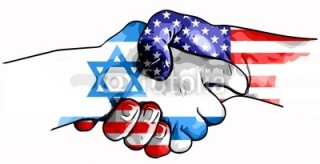
JC : The ‘news source’ cited dates from 2007, and there is very little biographical information about the author who writes for the “Heritage Foundation”, and was allegedly involved in the Clinton administration. So let’s ask a question, why does Iran not have a right to some modern weaponry? The US and Britain in 1953 engineered a coup via the CIA and MI6 to bring back the Shah of Iran, overthrowing a democratically elected government. This was done on behalf of ‘big oil’ as the Iranian government had nationalized Iran’s oil fields. When the Shah was ousted, the US cut ties (unless we discuss the Iran-Contra Affair). Countries have the inherent right to self defense, the US, Britain France, all keep their weapons systems modern – why not Iran? However, if you have already decided to go to war, you want your opponent as weak as possible.
“For years, a parade of high-level U.S. envoys — from State Department nonproliferation advisor Bob Einhorn to Secretary of State Hillary Clinton to President Barack Obama himself — have trekked to Beijing on Iran-related missions, only to come up short. The truth is that it is China, not the United States, that has been reluctant to engage on Iran — Beijing has frequently declined to send high-level envoys to meetings of the so-called “P5+1” powers, choosing instead to send its nearest ambassador, or be absent entirely. China hardly seems eager for more dialogue on Iran.”
JC : Perhaps because, strategically, Beijing adheres to a policy of ‘non-interference’? And in whose basic strategic interest is interference anyway?
“Beijing appears to fuel the very behavior that is most provocative to the United States and its allies — behavior that could destabilize the Middle East. Furthermore, other U.S. allies — Japan and South Korea, for example — have continued to obtain sizeable energy supplies from Iran while actively supporting the international sanctions regime.”
JC : Perhaps Japan and South Korea just play along to keep the US ‘happy’? DeGaulle once said that countries do not have friends, only interests – if it is in the interests of Japan and South Korea to do business with Iran, they shall. A corollary of the actions undertaken by South Korea and Japan is that the US needs their assistance and support more than they need the US’s – a symptom of waning power.
“Zhang’s sentiment has been echoed by other high-ranking Chinese military officers — including Dai Xu, an outspoken Chinese Air Force colonel and Yin Zhuo, a Chinese rear admiral — in discussions of how China can counter the perceived threat posed by democratic rivals like India and the United States and protect its interests in the face of American power projection in the Gulf and across the Pacific.”
JC : Why does the US need see this as a threat? If the US can have international bases, why cannot other countries? I think the answer to this was best given by Smedley Butler, although ‘Manifest Destiny to PNAC’ supplies the historical context. Honestly, the US 5th fleet is in Bahrain to protect US oil supply, it is entirely expected that another industrial nation should do the same thing to protect theirs! The US need not confront over this, as the countries that primarily supply the US are not affected by a Chinese base. The important thing to note is that a Chinese base in Iran will reduce the risk of an attack from another country – so for the US to protest so strongly, there must be an ulterior strategic motive.
“The cultivation of Iran’s security establishment and top-level leadership provides China with a strategically placed, regionally powerful client that can frustrate U.S. aims in a region where China seeks greater influence. For China, Iranian acquisition of nuclear weapons may be a negative development, but it is preferable to a reorientation toward the West.”
JC : Rather like the US cultivates South Korea, Japan, Taiwan, and now Vietnamese security establishment and top-level leadership? According to VT, Mr Singh’s info is dated, Iran already has nuclear capability.
“Although diplomatic cajoling won’t make much headway, Washington does have ways to induce Beijing to reassess its approach to Iran. Exercising these options, however, requires taking a step that the Obama administration has so far avoided: establishing a credible military threat to Iran. CCP strategists who judge Chinese interests as being well-served by current U.S.-Iran tensions would not make the same calculation in light of a credible U.S. threat to disarm the Iranian regime. Such a scenario would threaten China’s oil supplies and increase its energy costs, and could threaten Iran’s China-friendly regime. The United States need not dismiss or downplay the very real risks that would accompany conflict with Iran, but it must persuade Beijing and Tehran alike that this option is the alternative to full compliance with international sanctions.”
JC : The author needs to read ‘A Bridge Too Far’, then watch ‘The Three Kingdoms’, and then read ‘The Art of War’. The US is exhausted with over 10 years of unremitting war, depleted equipment, unpayable debts, an increasingly hobbled foreign policy, and a populace at home demanding the means to eat. For China or Russia the greatest gift the US could give, is an attack on Iran.
In martial arts the trick is to use your opponents force to defeat them. Both Russia and China see the US attempts at encirclement and both will do as they need to protect their sovereign interests and a US attack on Iran could lead to the complete fall of the USA. However, if you read Chinese history they are not a culturally violent people – when the various dynasties (Zhou excepted) were running smoothly, the armies languished. The Russians suffered terribly in WWII, they do not wish another war and their infrastructure is in disrepair. Again, what benefit is there for the US to attack Iran when simply meeting face to face, and negotiating trade deals that could benefit US workers is possible?
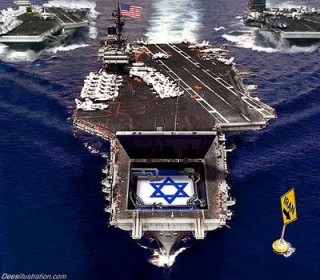 Perhaps the reason these authors espouse the military solution is the people who pay them to represent their interests. It appears from my brief and superficial analysis that should the US confront Iran militarily, Israel would win in the short term as they would be free to push for Greater Israel with their largest opponent neutralized. The long term winners would most probably be China and Russia. To finalize these links, Mr Singh’s organization is an offshoot of AIPAC (American-Israeli Public Affairs Committee) and we note from Mr Singh’s biography his heavy connection to Israel.
Perhaps the reason these authors espouse the military solution is the people who pay them to represent their interests. It appears from my brief and superficial analysis that should the US confront Iran militarily, Israel would win in the short term as they would be free to push for Greater Israel with their largest opponent neutralized. The long term winners would most probably be China and Russia. To finalize these links, Mr Singh’s organization is an offshoot of AIPAC (American-Israeli Public Affairs Committee) and we note from Mr Singh’s biography his heavy connection to Israel.
http://en.wikipedia.org/wiki/Washington_Institute_for_Near_East_Policy
http://www.washingtoninstitute.org/templateC10.php?CID=27
And we also note the following about Newmeyer-Deal. http://www.fpri.org/about/people/newmyer.html
http://en.wikipedia.org/wiki/Belfer_Center_for_Science_and_International_Affairs
and the organizations she represents: http://www.fpri.org/about/people/board.html and http://www.ltstrategy.com/
Sun Tzu suggests in ‘The Art of War’ that the most capable generals win without fighting, suggesting that Israeli strategists have mastered Master Sun’s writings for they are using their soft power to push their largest donor into a war that may well destabilize it – all for a chance to gain Lebensraum.
Reference:
http://www.foreignpolicy.com/articles/2011/10/31/china_iran_nuclear_relationship
Foiled Terror Plot w/ Iran – Fake?
Jack JC, is a reserve Officer in a NATO aligned country, he has a Bachelors Degree in Mechanical Engineering and an interest in the strategic effects history and culture bring to present geo-political affairs. As an international traveler he has friends and family serving in both NATO and non-NATO countries and would prefer that his friends and family in both camps not kill each other. He has operated at senior corporate levels of management, and has developed equipment for both civilian and military use.
ATTENTION READERS
We See The World From All Sides and Want YOU To Be Fully InformedIn fact, intentional disinformation is a disgraceful scourge in media today. So to assuage any possible errant incorrect information posted herein, we strongly encourage you to seek corroboration from other non-VT sources before forming an educated opinion.
About VT - Policies & Disclosures - Comment Policy



